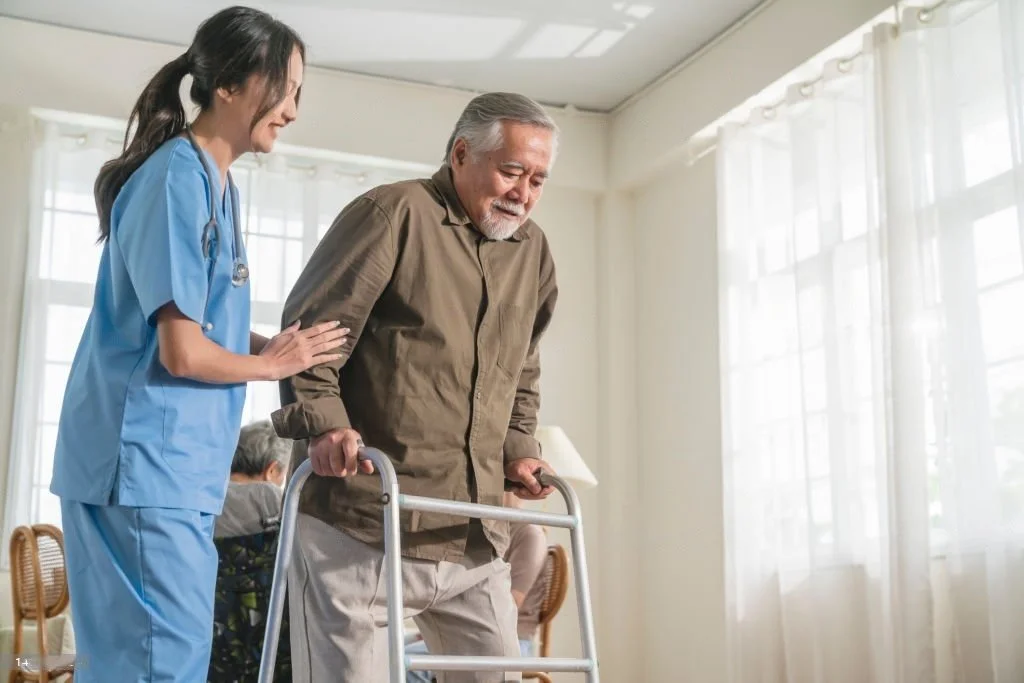Registered Nurses – Adult, Paediatric, Mental Health, Disability, Age Care, and Palliative
Our entire team of nurses are registered with the Australian Health Practitioner Regulation Agency (AHPRA) as both Registered and Enrolled Nurses and exhibit competence in their practice. Additionally, they possess up-to-date National Police, NDIS Worker, and Working with Children checks, as well as certifications in CPR and Manual Handling.
A community nurse is a healthcare professional who provides medical care and support to individuals in their own homes. They specialise in delivering personalised healthcare services to patients who require ongoing medical attention or assistance but prefer to receive care in the comfort of their own homes. We provide a range of services such as but not limited to:
Nursing Assessments: In-home nurses perform thorough assessments of patients in their own homes. They evaluate the patients' overall health status, including physical, mental, and emotional well-being, and monitor any specific health conditions or concerns.
Medication Management: In-home nurses ensure that patients receive the correct medications in the appropriate dosage and at the scheduled times. They may administer medications, monitor their effects, and educate patients and their families on proper medication administration and potential side effects.
Wound Care: In-home nurses provide specialised wound care services, including assessment, cleaning, dressing changes, and monitoring of wounds. They may work with patients who have surgical wounds, pressure ulcers, diabetic foot ulcers, or other types of wounds that require ongoing care.
Chronic Disease Management: In-home nurses support individuals with chronic conditions such as diabetes, heart disease, respiratory disorders, or neurological conditions. They assist patients in managing their symptoms, adhering to treatment plans, monitoring vital signs, and implementing necessary lifestyle modifications.
5. Rehabilitation Assistance: In-home nurses assist patients in their recovery from surgeries, injuries, or illnesses. They provide guidance on exercises, mobility support, and adaptive techniques to facilitate the patient's rehabilitation process within the home environment.
6. Patient and Family Education: In-home nurses educate patients and their families on various health topics, including disease management, self-care techniques, medication adherence, and recognizing signs of complications. They provide guidance on nutrition, exercise, and lifestyle modifications to optimise the patient's health outcomes.
7. Palliative and End-of-Life Care: In-home nurses may be involved in providing palliative and end-of-life care for patients with terminal illnesses. They focus on ensuring the patients' comfort, managing symptoms, and providing emotional support to both the patients and their families during this sensitive time.
8. Collaboration and Coordination: In-home nurses work closely with physicians, therapists, social workers, and other healthcare professionals to develop and implement comprehensive care plans for their patients. They coordinate services, arrange necessary medical equipment or supplies, and communicate any changes or concerns with the healthcare team.
9. Safety and Environmental Assessments: In-home nurses assess the safety of the patients' home environment, identifying any potential risks or hazards. They provide recommendations and education on how to create a safe living space, including preventing falls, ensuring proper lighting, and addressing any accessibility issues.
In-home nursing requires adaptability, strong communication skills, and the ability to work independently while providing high-quality care in a patient's home. Our nurses play an essential role in supporting patients' recovery, promoting their well-being, assisting individuals in maintaining their independence, and providing end-of-life care within the comfort of their own homes.


